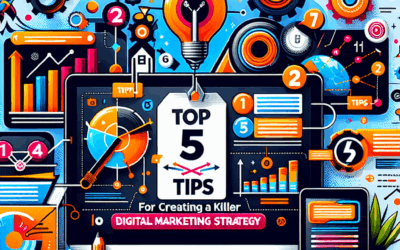In today’s digital age, having a strong online presence is crucial for the success of any e-commerce business. With the ever-increasing competition in the e-commerce industry, it is more important than ever for businesses to effectively market their products and services online. Digital marketing offers a wide range of opportunities for e-commerce businesses to reach their target audience and drive sales. In this ultimate guide, we will discuss some essential digital marketing strategies that can help e-commerce businesses achieve growth and success.
1. Search Engine Optimization (SEO)
One of the most important digital marketing strategies for e-commerce businesses is search engine optimization (SEO). SEO involves optimizing your website and content to improve your search engine rankings and drive organic traffic to your site. By incorporating relevant keywords, creating high-quality content, and optimizing your website’s technical aspects, you can improve your site’s visibility in search engine results pages (SERPs) and attract more potential customers to your e-commerce store.
2. Content Marketing
Content marketing is another essential digital marketing strategy for e-commerce businesses. By creating and sharing valuable and engaging content, such as blog posts, videos, and infographics, you can attract and engage your target audience, build brand awareness, and drive traffic to your e-commerce store. Content marketing also plays a crucial role in establishing your business as an authority in your industry and driving customer loyalty.
3. Social Media Marketing
Social media marketing is a powerful tool for e-commerce businesses to connect with their target audience, build relationships, and drive sales. By creating a strong presence on popular social media platforms, such as Facebook, Instagram, and Twitter, you can engage with your audience, showcase your products and services, and drive traffic to your e-commerce store. Social media marketing also allows you to run targeted advertising campaigns to reach specific demographics and increase conversions.
4. Email Marketing
Email marketing is an effective digital marketing strategy for e-commerce businesses to nurture leads, drive sales, and build customer loyalty. By sending personalized and relevant email campaigns to your subscribers, you can keep them engaged and informed about your products and promotions. Email marketing also allows you to track and analyze customer behavior, segment your audience, and optimize your campaigns for better results.
5. Paid Advertising
Paid advertising, such as pay-per-click (PPC) advertising and social media advertising, is a valuable digital marketing strategy for e-commerce businesses to increase their online visibility and drive targeted traffic to their websites. By running targeted and optimized advertising campaigns, you can reach potential customers who are actively searching for products and services similar to yours and drive conversions. Paid advertising also allows you to track and measure the performance of your campaigns and optimize them for better results.
6. Mobile Marketing
With the growing number of mobile users, mobile marketing is becoming increasingly important for e-commerce businesses. By optimizing your website and content for mobile devices, creating mobile-friendly ads, and using location-based marketing strategies, you can reach and engage mobile users and drive sales. Mobile marketing also allows you to track and analyze customer behavior on mobile devices and optimize your campaigns for better results.
7. Analytics and Conversion Rate Optimization
Analytics and conversion rate optimization are essential digital marketing strategies for e-commerce businesses to track and analyze the performance of their marketing campaigns, website traffic, and customer behavior. By using tools such as Google Analytics, you can monitor key metrics, such as website traffic, conversion rates, and revenue, and identify areas for improvement. Conversion rate optimization involves testing and optimizing your website and marketing campaigns to increase conversions and drive sales.
Implementing a comprehensive digital marketing strategy is essential for the growth and success of e-commerce businesses in today’s competitive market. By incorporating strategies such as search engine optimization, content marketing, social media marketing, email marketing, paid advertising, mobile marketing, analytics, and conversion rate optimization, e-commerce businesses can attract and engage their target audience, drive traffic to their websites, and increase sales. By continuously monitoring and optimizing their digital marketing efforts, e-commerce businesses can stay ahead of the competition and achieve sustainable growth.
By following the ultimate guide to e-commerce digital marketing strategies for growth outlined in this article, e-commerce businesses can take their online presence to the next level and reach their full potential in the digital marketplace.
Need Affordable Digital Marketing For Your Business? Discover our Digital Marketing Services
Reserve a Digital Marketing Strategy Call




0 Comments